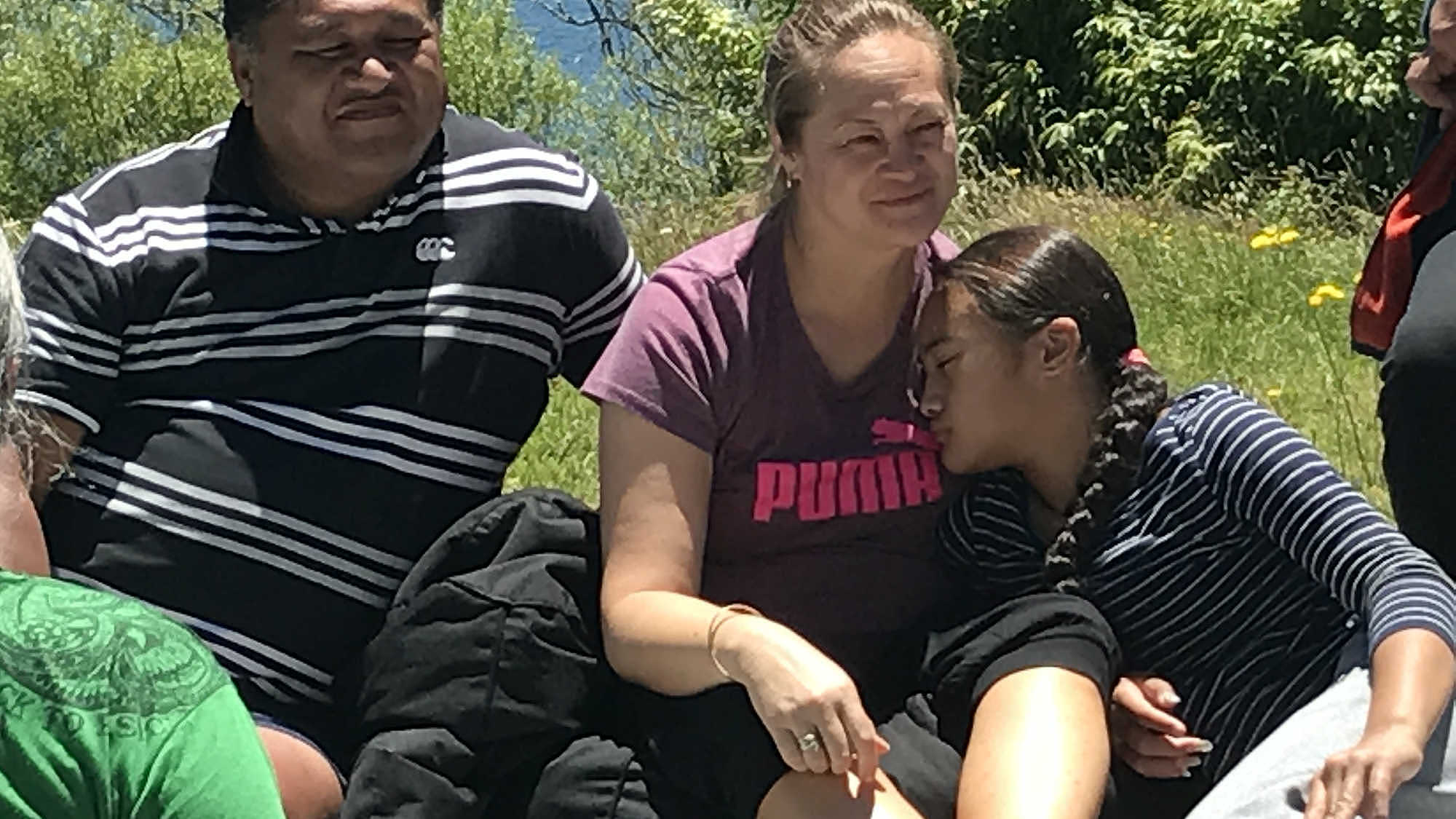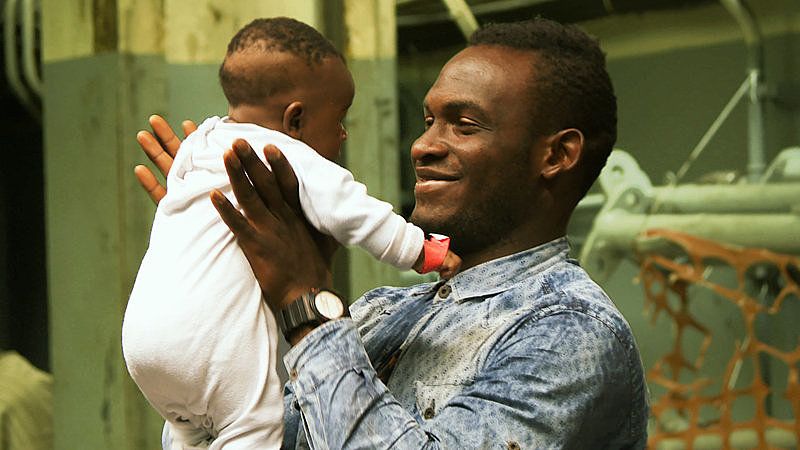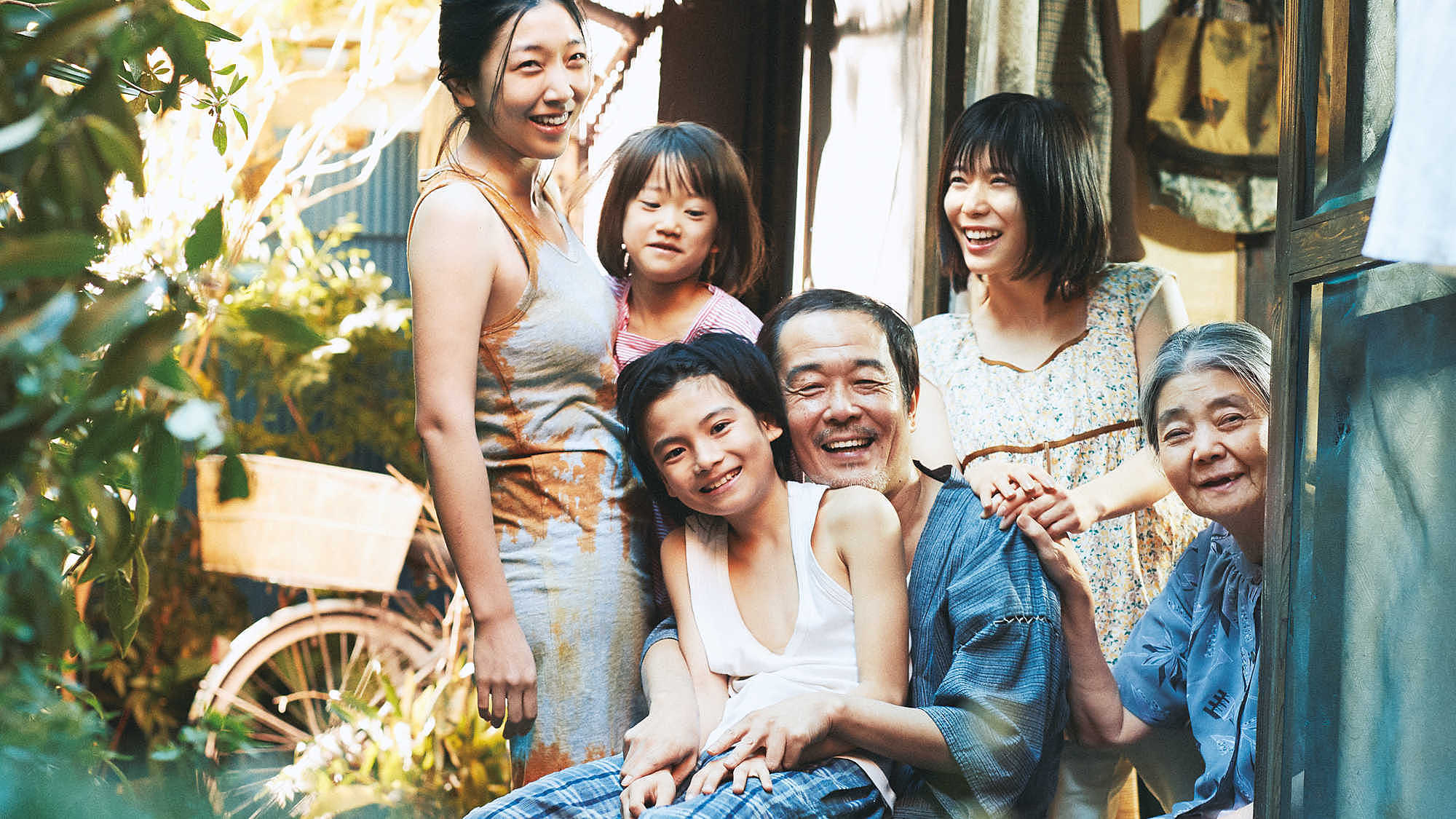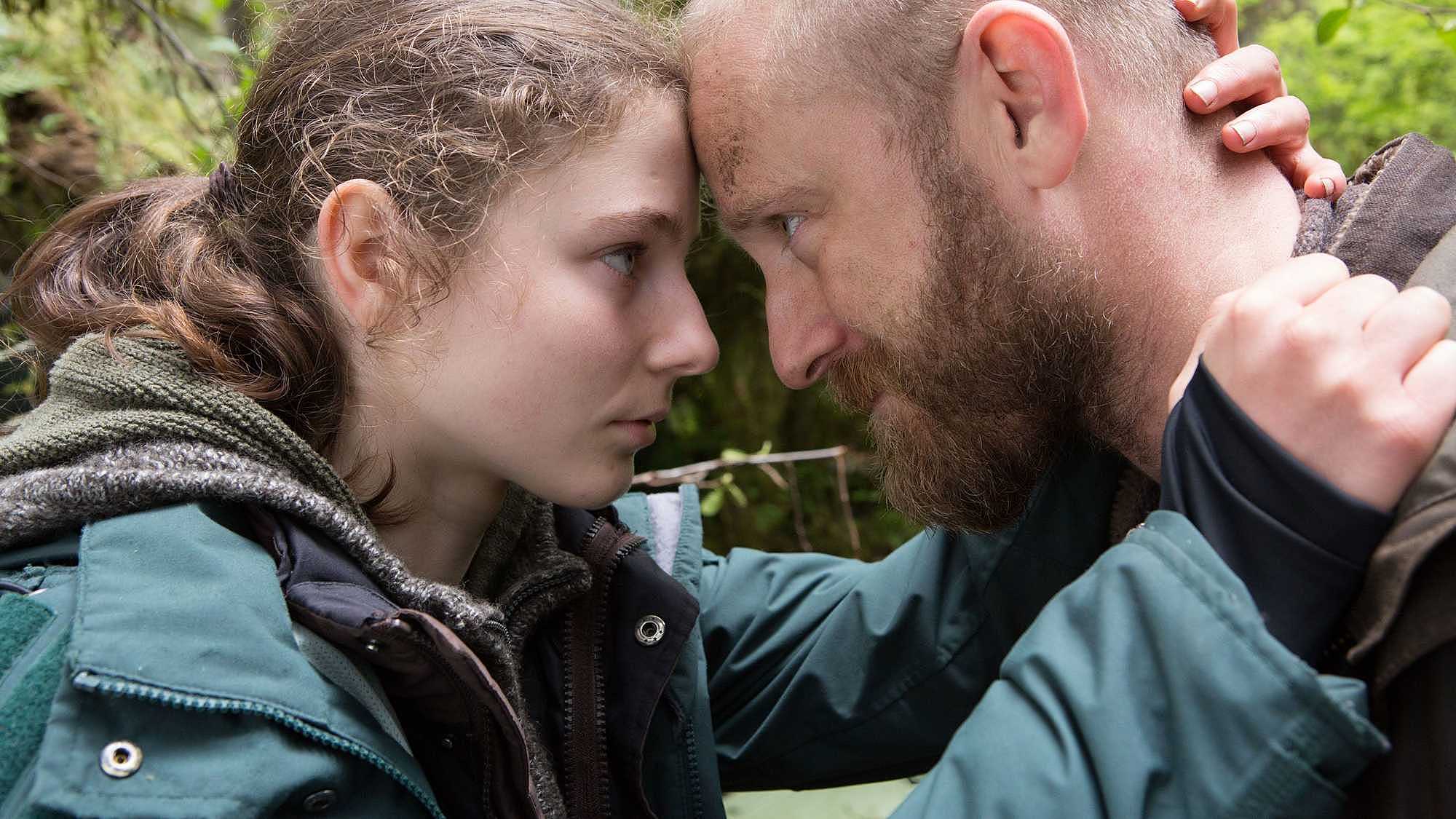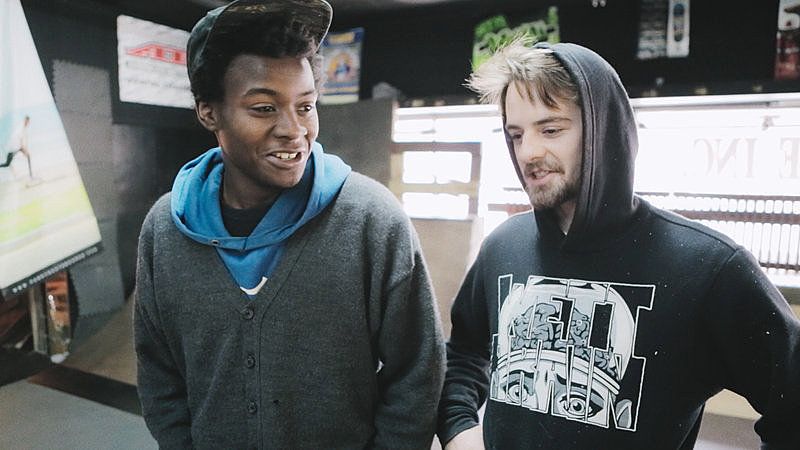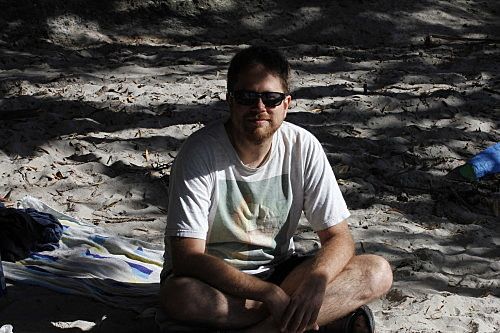Nothing Like Family
Doug Dillaman and the unlikely, unconventional and uncommon family as featured in the New Zealand International Film Festival.
Doug Dillaman and the unlikely, unconventional and uncommon family as featured in the New Zealand International Film Festival.
With 150 films in the New Zealand International Film Festival, it’s a fool’s game to declare a central theme to the programming and yet, over and over, the films I’ve previewed keep returning to the theme of unconventional families. Perhaps it’s a sign of the world’s current turbulent times, where forces greater than our own understanding are at play. There’s a reason one of the most reverberant stories in the current omnishambles of American politics is the separation of migrant children from their parents at the border. The larger societal story can only be understood through the smaller relatable story, with the family being the most intimate crucible of drama.
Whether or not it’s caused by current events, this year’s NZIFF programme reflects a global tendency to refract politics through fractures in family, both great and small. The refugee crisis is observed through a familial lens in both the Icelandic refugee drama And Breathe Normally and the Swiss documentary Eldorado. The situation of Palestinians living in Israel is both comically and bitterly observed through a day in the life of a father and son delivering wedding invitations in Wajib – The Wedding Invitation. The familial legal battle of Capharnaüm casts a light on the traumas of life in Lebanon, while The Harvesters casts a similarly brutal light on post-apartheid Afrikaner insecurity in one family that chooses to adopt a son. And the blunt, literal title of A Mother Brings Her Son To Be Shot uses its titular incident as a lens on contemporary Irish politics. Even a lighter film like the Spanish documentary Lots of Kids, a Monkey, and a Castle can’t keep the outside world away, as the economic crisis comes crashing down on this unique family.
For some auteurs, of course, the subject of the family is their bread and butter. Take Japan’s Kore-eda Hirokazu, who’s consistently returned to unconventional families – the remarried widow and disapproving mother-in-law in Still Walking, the swapped-at-birth drama Like Father, Like Son, the assimilated half-sister in Our Little Sister, and the abandoned children of Nobody Knows, to name just four. While superficially Kore-eda’s films often seem placid to a Western eye, he’s arguably a more committed bomb-thrower than provocateurs like his fellow countrymen Miike Takashi and Sono Sion, saving his anger not for visual shocks but for a systematic attack on a Japanese lack of acceptance for non-traditional families, a topic he discusses in length in a fabulous interview on Criterion’s Still Walking Blu-Ray. Even with his recurrent return to this theme, observers were still a bit surprised when Kore-eda declared himself “the Japanese Ken Loach” in a 2015 interview. Surely, the distance between Britain’s most committed political dramatist and this polite Japanese filmmaker could only be crossed in Kore-eda’s mind?
This year’s Palme D’or winner, Shoplifters, promises to be the film that reconciles this notion for Western viewers. The assortment of people in Shoplifters, all of whom are at the economic margins, is Kore-eda’s most unconventional collection yet, some related, some rescued from uncertain fates, all living together in a crowded, squalid home. The title is, perhaps, a bit of a mislead. Yes, some of them do shoplift, but they also work other jobs to stay afloat, from construction to stripping. One night, the father and son – the former having found the latter alone in a car many years ago – return from their mission to find a young girl on the street, hiding from her abusive parents. They decide to take her in to their band of misfits, a decision that from the inside feels natural and just.
And if flaws in that society mean this rag-tag gang sticks together and true familial love grows within this family-esque unit, isn’t that something better than being stuck with a biological family whose love and care is entirely absent?
How it looks from the outside is a much-delayed discovery, as Kore-eda is in no rush to force drama, and we observe moments of intimacy, tenderness, and joy at an unhurried pace. This is not to say that all is light, as Kore-eda’s portrait is certainly warts and all, not papering over moral compromises. But for every finger that can be pointed at our subjects, another one can be pointed straight back at Japanese society. And if flaws in that society mean this rag-tag gang sticks together and true familial love grows within this family-esque unit, isn’t that something better than being stuck with a biological family whose love and care is entirely absent?
It’s a foregone conclusion as to both Kore-eda’s feelings on the topic and how it plays out in the narrative. And yet, as in a slow-motion car accident, seeing the inevitable outcome arriving has little effect on the actual impact. Kore-eda’s observational style and brilliant naturalistic directing of actors fools one into a false sense of complacency; indeed, if you had to leave at the one-hour mark, you could be forgiven for believing nothing really would happen. And yet, as in his best films, particularly Still Walking, the emotional weight lands with unexpectedly strong force when it finally arrives. For a reliable auteur who’s oft taken for granted due to his prodigious output and stylistic and thematic consistency, the Palme D’Or is a welcome signal for those who have taken Kore-eda for granted over the past few years to revisit his work and discover there’s something more potent than the smell of green tea.
Also featuring in the Big Nights section of the programme, Debra Granik’s similarly quiet but even more potent Leave No Trace makes a compelling counterpoint. In this film, the father (Ben Foster) and daughter (Kiwi Thomasin Harcourt McKenzie, and let me be the 35,432nd person to tell you she’s amazing in this breakout performance) are biologically related, but that’s as conventional as things get. From the first frames, it’s clear that the two are living alone in the wilderness, largely surviving off the land in a park on the outskirts of Portland. It’s a peaceful and loving relationship, even if it’s clear from an early visit to a Veteran’s Affairs office that dad has larger issues to contend with, issues that may have precipitated this lifestyle choice.
It’s an arrangement that can’t last forever, but Debra Granik – thankfully – is no Ken Loach. When the system arrives and overturns their life, the representatives of the system aren’t brutish hateful functionaries but genuine compassionate people. In fact, those expecting the thrills and darker edges of Granik’s previous feature Winter’s Bone may be taken aback to learn that dramatic conflict is consistently softened and that the people McKenzie and Foster encounter are just…really nice. The tensions don’t come from the humans; they come entirely from the larger economic and social forces (from PTSD to the opioid crisis) bearing down on them.
That’s not to say there’s no conflict, as over the course of the film McKenzie grows from a supportive daughter in a close-knit unit to a young woman who wants – and needs – to connect to society in a way her father can’t. I’m hesitant to propose that Granik is asking a central dramatic question, as much of her working method seems to be about bringing real people into her films to provide an observation of reality rather than a dramatic modification of it. But the film keeps returning to a seemingly intractable dilemma: what do you do when what’s best for you and what’s best for the family member you love aren’t the same thing? The resolution Granik finds to this question emotionally overwhelmed me and reverberated long after the film ended. A week out, it’s easily one of the two best films I’ve seen out of a dozen or so NZIFF previews.
Where some will find Granik’s film too subtle to provoke the sort of emotional response I had, the same won’t be true for Bing Liu’s documentary Minding The Gap, filmed a couple thousand miles west in Rockford, Illinois over several years. Liu follows two of his high-school skateboarding friends, all three from broken homes and all of different racial backgrounds, for several years. Over time, their bond of friendship becomes more like family than their ‘real’ families. But as the friends transition into adulthood, the permanency of this family of friends is called into question. What happens when one of your friends starts a biological family of their own? And can you continue to forgive unsavoury behaviour as it becomes harder to ignore?
Minding The Gap isn’t really a skateboarding film, although the skateboarding looks great. It’s a film about trauma – the trauma that a failed system has inflicted on small-town America, and the trauma that a legacy of abuse has left in families. At first, it appears that our filmmaker is on the outside, quietly observing two friends with challenging upbringings, but eventually it becomes clear that he has much more in common with his friends than he lets on, even to them. A heart-breaking moment near the end where he reveals this to one of the friends is one of several ugly cries I had during this film (if you’ve ever cried at a film, bring tissues).
Observing from ground level, Minding The Gap gives no easy answers, instead complicating simple narratives through astute honest observation and increasingly, interrogation. An interview between Liu and his mother, in which Liu confronts her in an attempt to understand how she could let this situation unfold, winds up ending in a manner the filmmaker obviously hadn’t predicted, one that makes it clear how messy trauma can be. Liu’s intimacy with his friends leads us to tender, hysterical, tragic and maddening places, and his choice of end-credit song – The Mountain Goats’ This Year, a defiant anthem about surviving abusive familial relationships, with its shout-along chorus “I am going to make it through this year if it kills me” – is as good an epigram as Samuel Beckett’s famous closer, “I can’t go on. I’ll go on.”
Beckett’s epigram could equally apply to a story of broken homes in Aotearoa, Māui’s Hook. Tracking a hīkoi around the North Island from Taranaki to Cape Reinga, Māui’s Hook gathers families who have lost members to suicide, to testify their loss and help come to terms with their grief. Director Paora Te Oti Takarangi Joseph guides the group discussions and conducts interviews, some of which are of shattering intimacy and honesty. One family member flees, overcome with grief, while another confesses secrets about their lost member that others have never heard.
In an attempt to add another layer to the film and make it more palatable to youth who would flee from the word “documentary,” Joseph also has introduced a fictional element, a young man who is along for the ride, having recently attempted suicide himself. It’s good to know going in that the families were all on board with this well before the filming began, as the mix of drama and documentary could otherwise be uncomfortable on an empathetic level. Personally, I’m of two minds as to whether the film is stronger for this dramatic element or not, but I can see how without its inclusion a more literal depiction of the hīkoi might prove too challenging, and it provides the film space to expand its stylistic vocabulary. (Cinematographers Bevan Crothers and Maria Ines Manchego do fantastic work, and editor Gareth Dick pulls together documentary and drama with seamless craft.)
When the problems of the world seem too big, it’s important to remember that one conversation can change a life
Fundamentally, though, Māui’s Hook is both a film that’s dedicated to the kaupapa that a korero around suicide is the only way our families can move forward, and a film that’s designed as an instrument to advance that korero. In a festival with no shortage of films mining the seam between the familial and the political, Māui’s Hook takes a step beyond the rest with a release that will only occur in conjunction with post-film discussions, first at NZIFF, then at marae and community venues around the country. Despite reference to numerous societal problems, there’s no easy solution posited to suicide in Māui’s Hook, yet it can be said that generating conversation is a worthwhile goal in and of itself.
The biggest problems need to start being addressed at the smallest levels, and the smallest level is the family, be it biological or otherwise. When the problems of the world seem too big, it’s important to remember that one conversation can change a life. And all four of these films remind us the most important component of a conversation is listening.
